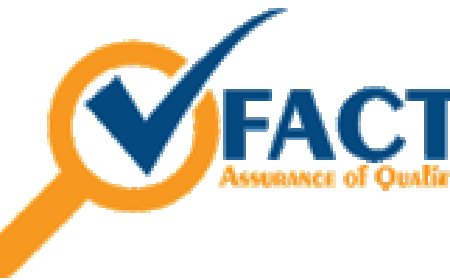How to Set Up Your Business in Dubai
Setting up in Dubai involves a clear roadmap: choose an activity, pick your jurisdiction, reserve a name, secure an office, get licensed, open a bank account, apply for visas, and comply with registration.

1. Define Your Business Activity & Structure ?
-
Dubai permits over 2,000+ business activities, categorized under Commercial, Professional, Industrial, and Tourism sectors. Begin by identifying where your business fitsfor instance, retail, consultancy, manufacturing, or hospitality
-
Next, choose your business structure. Options include:
-
Mainland LLC (Limited Liability Company): Offers full access to the UAE market; historically required 51% local ownership, but recent laws allow 100% foreign ownership in most sectors
-
Free Zone Company (FZ?LLC or FZE): Grants 100% foreign ownership, with simplified licensing and repatriation benefitsideal for international traders, service providers, and startups
-
Offshore Company: Suited for international holding structures or asset protection; these cant trade within the UAE itself
-
2. Choose the Right Jurisdiction
-
Free Zones (e.g., DMCC, DSO, JAFZA, Meydan, DAFZ):
-
Offer 0% corporate & personal tax, 100% ownership, no customs duties, and fast registration processes
-
Examples:
-
DMCC: Dubais top free zone for trading, hosting 25,000+ companies
-
Meydan Free Zone: Focuses on e?commerce and startups; offers bundled licensing, desks, office space, visa support, and digital business platforms .
-
Jebel Ali Free Zone (JAFZA) & Dubai Silicon Oasis serve logistics, tech, manufacturing sectors .
-
DIFC is a specialist financial hub with its own common-law courts, zero taxes, and 50-year guarantees .
-
-
-
Mainland: Ideal for anyone seeking full UAE market access and participation in government contracts. Requires an office and (where applicable) a local service agent, but 100% foreign ownership is increasingly allowed
3. Reserve a Trade Name & Get Initial Approval
-
Submit 35 unique name options to the Department of Economic Development (DED) for mainland, or to your Free Zone authority. Names must avoid dishonorable or religious terms, and personal names must be fully used
-
Obtain initial approval (a preliminary no objection) from the DED or free zone, needing owner/passport copies, application forms, and a business plan. Certain sectors (like health or education) require additional agency approvals
4. Finalize Office & Licensing
-
Secure office space:
-
Mainland requires a physical locationcan be shared or full.
-
Free Zones often offer virtual offices or flexi?desks, minimizing overhead
-
Register your lease with Ejari (mainland) to qualify for visas
-
-
Apply for & obtain your license: Choose from Commercial, Professional, Industrial, or Tourism licenses based on your operationlicense delivery time varies (2448 hours in many free zones)
5. Finance & Legal Registration
-
Prepare your Memorandum and Articles of Association (MOA/AOA)essential for LLCsand register with the DED or free zone regulator
-
Open a corporate bank account: Leading banks include Emirates NBD, Mashreq, FAB, HSBC, Citibank. Expect a 12 week due-diligence process
-
Register for VAT (mandatory over AED?375?k revenue) and Corporate Tax (if profits exceed threshold or in mainland)
-
If applicable, prepare for audits, UBO filings, and ongoing accounting per IFRS
6. Apply for Visas & IDs
-
Obtain your establishment card from MOHRE to sponsor staff.
-
Process for visas includes: entry permit ? medical check ? Emirates ID registration ? residency stamping (
-
Free zone bundles often include 16 visas; mainland visa count depends on office size
7. Launch & Comply
-
Begin operations once your trade license is active.
-
Comply with labour laws under Federal Decree?Law 33/2021, issue formal contracts, bear your employees repatriation and insurance costs
-
Maintain annual financial statements, VAT quarterly returns, tax filings within nine months after your fiscal year close .
-
Renew your license and trade name annuallyexpect yearly fees
Why Dubai?
-
Fiscal advantages: Theres no personal income tax, minimal corporate tax (zero to very low), and full capital repatriation
-
Strategic location: Dubai forms a vital link between Europe, Asia, and Africa with world?class ports and airports.
-
Business culture: A stable, safe, and cosmopolitan environment with strong infrastructureideal for startups and global expansion
Quick Cost Estimates
| Item | Free Zone (Typical) | Mainland |
|---|---|---|
| License | AED 10k25k | AED 15k30k |
| Office/Desk | AED 5k50k | AED 20k100k |
| Visa | AED 3.5k5k per visa | Similar |
| Agent/Sponsor | N/A | AED 5k10k |
| Registration/Compliance | AED 2k5k | AED 2k5k |
Pro Tips
-
Consult a setup expert (e.g., Shuraa, Filings.ae) to streamline licensing and bank account processes
-
Considerfree zone alignment: choose one that matches your activity (e-commerce, finance, tech) for cost and facility efficiency
-
Stay on top of compliance schedules: VAT, annual audits, visa renewalsmissed deadlines can lead to fines.
-
Use DIFC for financial services: it offers a strong common?law legal structure and deep global tax treaties.
In Summary
Setting up in Dubai involves a clear roadmap: choose an activity, pick your jurisdiction, reserve a name, secure an office, get licensed, open a bank account, apply for visas, and comply with registration.
Dubais fiscal benefits, strategic location, and efficient setup frameworksespecially via free zonesmake it a top destination for entrepreneurs worldwide.
With the right support, your business can be up and running in weeks, positioned for growth across the MENA region and beyond.





































